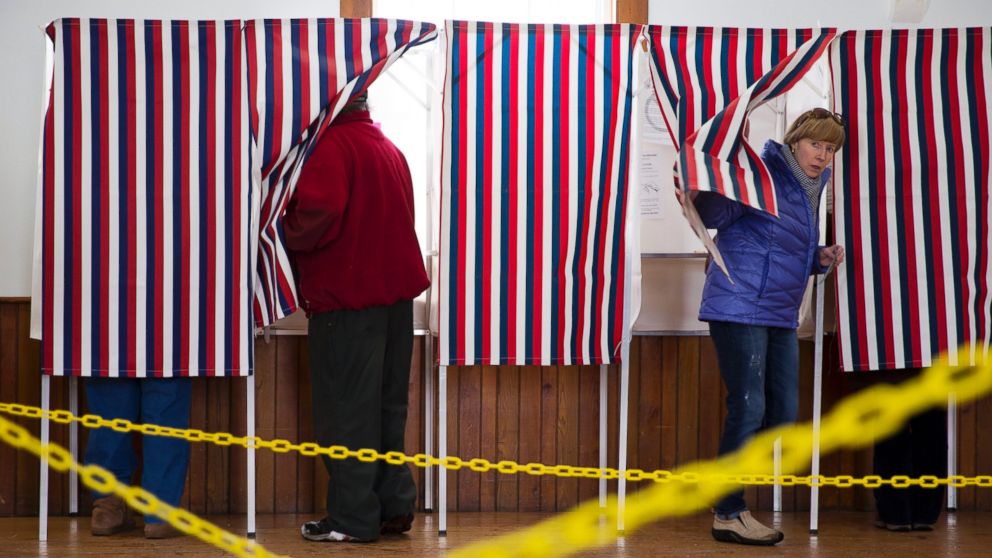Pushback Against the Political Order Boosts Both Trump and Sanders in N.H. (POLL)
A powerful pushback against the established political order lifted Donald Trump

— -- A powerful pushback against the established political order lifted Donald Trump and Bernie Sanders alike in New Hampshire, underscoring deep splits both within and between the Republican and Democratic parties.
Trump was boosted to victory by broad support among voters seeking a political outsider, anger at the federal government, strong worry about the economy and terrorism and substantial backing for some of his controversial proposals. He did best with less-educated voters, those looking for blunt talk and those who see better days ahead – classic elements of a populist movement.
Sanders, for his part, crushed Clinton on the personal attributes of honesty and empathy, whaled among independents and liberals and won young voters – including young women – by extraordinary margins. He prevailed by a vast 70-29 percent among voters focused on income inequality and ran very close with Clinton in two of her strongholds – mainline Democrats and nonwhites, as rare as the latter are in New Hampshire.
The question is where Sanders goes from here. While off their peak for New Hampshire, independents accounted for 40 percent of voters in the Democratic primary, far more than is customary in other states. Just 7 percent were nonwhites – a group likely to exceed half the Democratic electorate in South Carolina on Feb. 20. And a record 69 percent in New Hampshire were liberals, turnout that, again, may be hard to replicate.
Trump’s performance may be less difficult to repeat; while his support peaked among particular groups, he showed strength across the board, winning mainline Republicans and independents; men and women; and conservatives, as well as running competitively among moderates. Still, as in Iowa, he was weak among voters focused on a candidate who “shares my values,” an attribute that may gain salience elsewhere, especially in Southern states where evangelicals predominate.
What remains to be seen on the GOP side is whether the two-thirds of Republicans who didn’t back Trump coalesce around another candidate – perhaps as the field narrows – or remain fragmented. For the Democrats, it’s whether Clinton can pull herself up in the party’s mainstream, sharpen her appeal to young voters and overcome her longtime weakness on honesty and the common touch.
A detailed summary of exit poll results follows, analyzed for ABC News by Langer Research Associates.
The Republican Race
Among Trump’s accomplishments was appealing to a New Hampshire electorate that was far more conservative than usual for the state. A record 71 percent of GOP voters were conservatives, up dramatically from 53 percent in the 2012 primary. Trump won 36 percent of all conservatives and 35 percent of very conservatives, the latter 14 points better than in Iowa.
Most fundamental was his appeal as a disrupter: Half of GOP voters said they wanted an outsider rather than a candidate with political experience; 61 percent in this group backed Trump. (The next closest was not close – Ted Cruz, at just 10 percent).
Trump benefited from anger and apprehension, as well. Four in 10 said they were angry with the Obama administration, seven in 10 were very worried about the economy and six in 10 very worried about terrorism. Trump won 42 percent, 38 percent and 39 percent in these groups, respectively.




